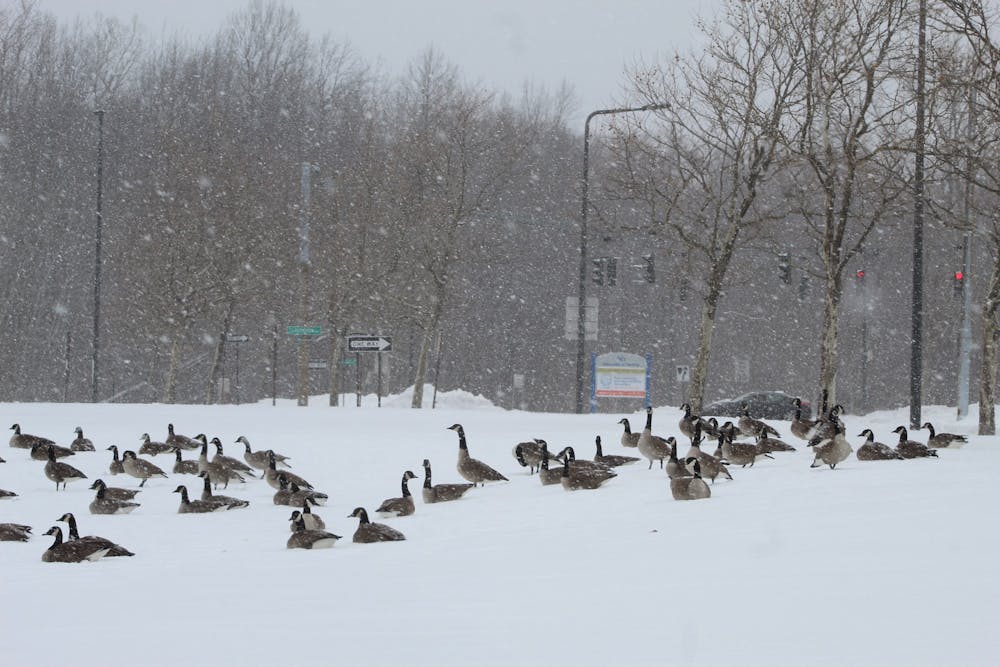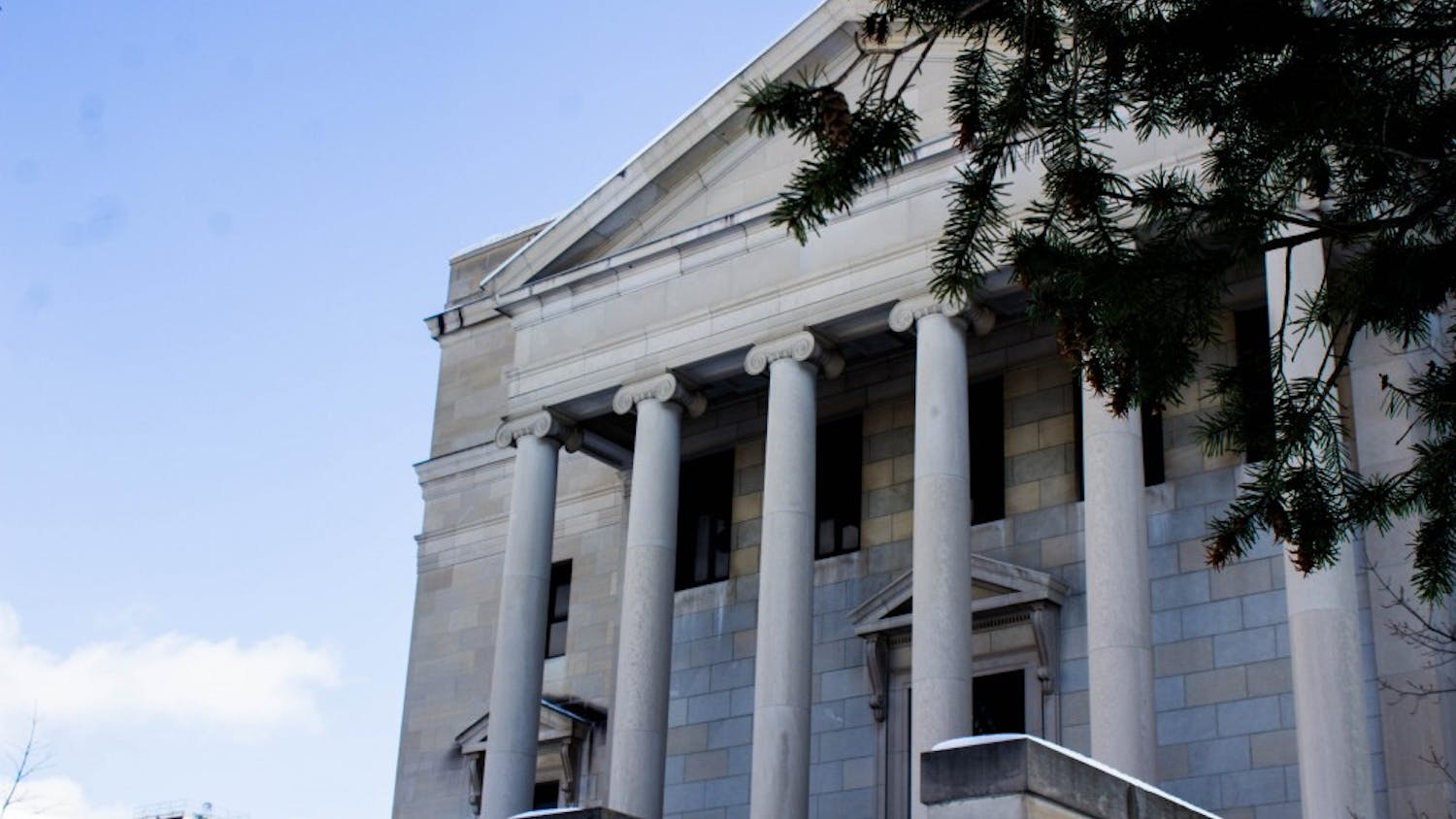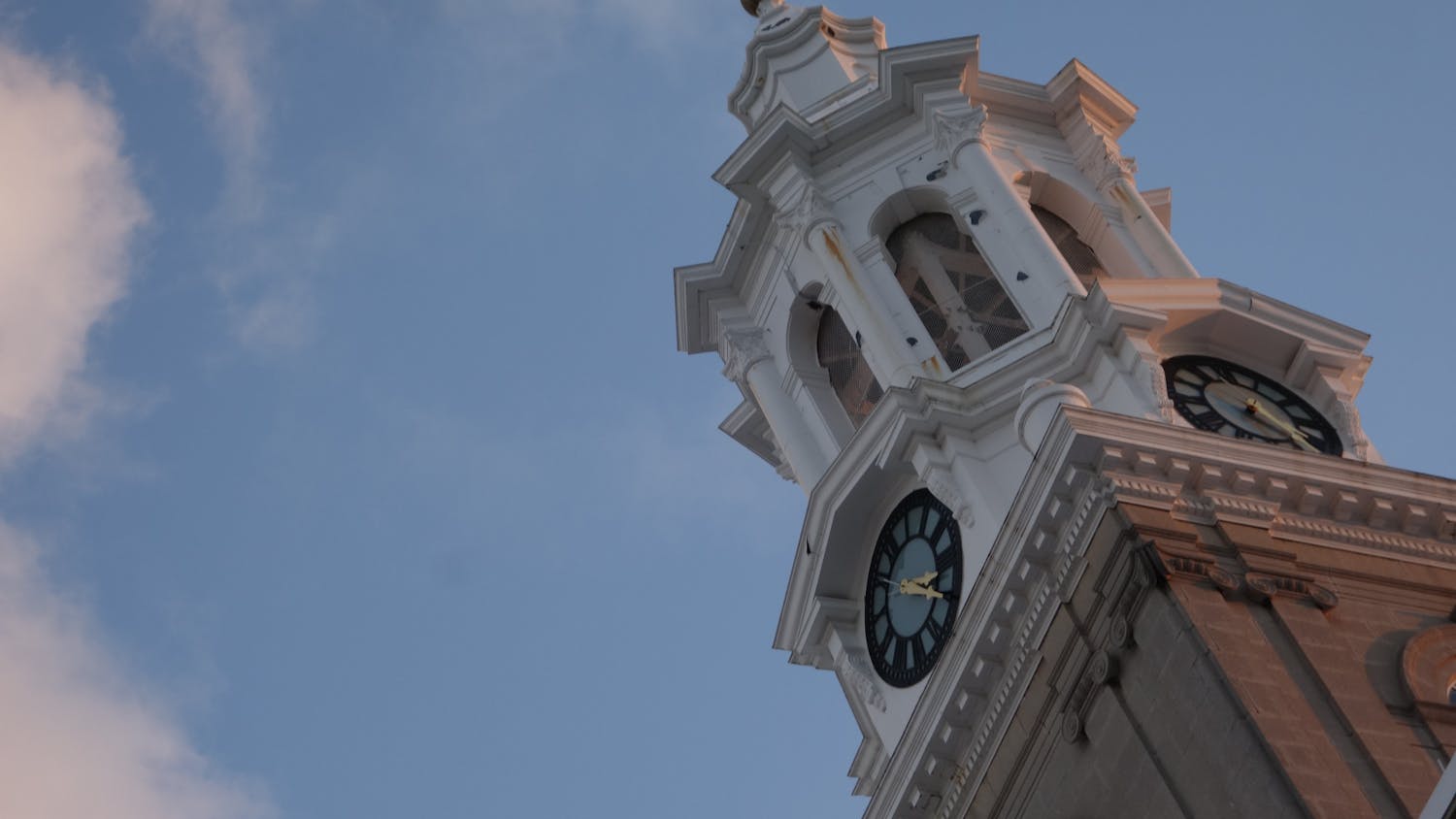The recent weather has left many confused about whether they should grab a winter coat, an umbrella or sunglasses before walking out the door.
Buffalo is experiencing record-high temperatures this November. The city hit a record-high 74 degrees Fahrenheit on Nov. 6, beating the previous record, set in 1948, of 73 degrees Fahrenheit.
Buffalo should expect “slightly below-normal snow amounts with fewer impactful lake-effect snow events,” according to WKBW.
Temperatures are forecast to be slightly above normal with above-average precipitation, but that forecast does not predict whether the precipitation in question will be rain or snow.
This fall’s unusually warm weather can be attributed to La Niña, a weather pattern that changes the Pacific Ocean temperature and the patterns of tropical rainfall.
These changes in tropical rainfall patterns affect weather patterns throughout the world and are “usually strongest during the winter months when the jet stream is strongest over the U.S.,” according to the National Oceanic and Atmospheric Administration.
La Niña causes colder and stormier-than-average conditions across the northern U.S. and warmer and less stormy conditions across the southern U.S.
This is the third year in a row that La Niña has affected weather patterns in Buffalo.
Even though Buffalo experienced 70 degree Fahrenheit weather in early November, the first snow fell on Sunday, accumulating to less than an inch.
Despite the predictions made within the past weeks, on Monday, the National Weather Service issued a winter storm watch from Thursday to Sunday in Erie, Genesee and Wyoming counties.
The storm watch indicated that there is “heavy lake effect snow possible, with total snow accumulations of one to two feet, or more.”
The winter storm watch turned into a lake effect snow warning, prompting Gov. Kathy Hochul to declare a state of emergency for portions of Upstate and Western New York, which took effect at 10 a.m. Thursday.
The university has since canceled all classes and activities for Friday and Saturday. Many of Buffalo’s southtowns have received over three feet of snow as of Friday. The university expects to resume normal operations Sunday, and classes and activities “will be held as scheduled” on Monday.
UB will continue following its Adverse Weather Operations Policy, which was established in 2017, to make schedule changes in the face of adverse weather conditions.
UB bases its decision on whether to cancel, delay or issue an early departure for classes or events on “numerous factors and input from the Emergency Planning Oversight Committee, including officials from departments responsible for student life and safety, academic scheduling, emergency management, athletics, human resources, facilities operations, and campus infrastructure,” according to the policy.
The policy also states that the safety of students, employees, visitors, and guests is “a primary concern” when making weather-related decisions about campus operations.
There were only “nine days over the past 10 years in which classes were canceled due to severe winter weather, according to UB Alert records,” John DellaContrada, a university spokesperson, said Monday. With Friday and Saturday’s cancellations, that number has now increased to 11 days.
President Satish Tripathi makes the final decision to change scheduled operations which would result in class cancellations, class delays, an early departure, or a closing. Only Gov. Kathy Hochul can officially direct an early departure or close the university.
The university has a website for winter travel advice, with tips on how to navigate the campus during the winter months. It also encourages students to sign up for UB Alert texts and to look out for informative emails in the case of a severe weather emergency.
Victoria Hill is an assistant news/features editor and can be reached at victoria.hill@ubspectrum.com
Editor’s note: This story was updated Friday, Nov. 18 to include new information related to this weekend’s winter storm.





